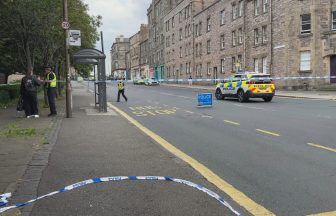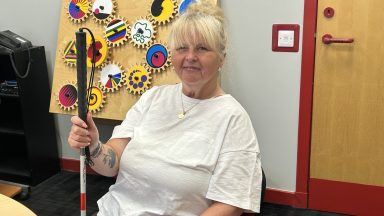Almost a third (31%) of Scottish shoppers who planned to buy new clothes over the Christmas season will wear them just three times or less before either throwing, selling or giving them away, charity poll has found.
A study from the charity Action Aid two in five (41%) shoppers in Scotland said they would buy at least one new item of clothing, with many opting for low-cost items: almost a third (31%) said they would spend £20 or less on each item.
More than half of Scottish shoppers would spend £20 or less on items either for themselves or as gifts.
But cheap clothing means those making it in Bangladesh are on low wages with many of them struggling with the cost of living.
Action Aid media specialist Isabella Cipirska said: “The prices of essentials have really risen and people are telling us they’re really struggling to feed their children or by medicine when they need it.
“A lot of women are having to take their children out of education and a number of girls are now having to find work and are now working in the factories.”

A study from Action Aid found a third of clothes bought during the festive period will be donated, many still with the tags on.
The charity is urging shoppers to think carefully about their fashion purchases this year.
Second-hand shop The Wardrobe in Dundee said more people are donating clothing they’ve bought but have never worn.
Project worker Joyce Reid said: “We definitely get a lot of brand new clothes. We got a lot just before Christmas and I think that was people getting ready for the influx of new things coming into their home.
“But it’s a constant issue. We’ve got so much already – we’ve actually started a new rail for new clothes still with the tags on.
“I think because they’re sold so cheaply people think they can buy them and wear them once or twice and that they’re not designed to last.”
Cheap clothes inevitably means low pay and poor working conditions for the people who make them.
In Bangladesh – the world’s second biggest supplier of clothing – many garment workers, the vast majority of whom are women, are struggling to survive on their wages as rising prices due to the global economic crisis push the cost of vital essentials out of reach.
Mass demonstrations over pay have erupted over the last few weeks as garment workers demand higher wages.

The government has agreed to raise the legal monthly minimum wage from 8,000 taka (£58) to 12,500 taka (£90) but workers say they need 23,000 taka (£165) a month to survive.
Hajera is one of the more than four million people who work in Bangladesh’s textile industry.
The 36-year-old mother-of-two, who lives in Dhaka, is the main breadwinner in her family but is increasingly struggling to afford essentials as rising prices outstrip her salary.
She said: “We have to pay higher prices for goods, but our salaries are still really low. Potatoes were 20 taka [£0.14] per kg but now they’re 40 taka [£0.28] per kg. The price has doubled.
“Sometimes when we are sick, we don’t buy medicine. We can no longer afford to buy any kind of fruit. We used to buy nutritious foods like milk and eggs for our children. But we are unable to buy these now due to the price hike.
“Due to a lack of money, many families can no longer continue with their daughters’ education. Now there are a lot of underage girls working in the garments factory. Many of them are forced into marriage at a very early age.”
Susan Wilders, Co-Director of Fundraising at ActionAid UK, said: “Many of us enjoy searching for the perfect new party outfit to wear or picking out the ideal gift for a loved one. This year, ActionAid is asking people to think twice about the women making the clothes they are buying.
“These inspirational women are working together to demand higher wages and better working conditions so that they can survive this economic crisis and support their families to thrive. You can show solidarity with them by supporting our campaign and helping them continue to fight for their rights.”
Follow STV News on WhatsApp
Scan the QR code on your mobile device for all the latest news from around the country





















